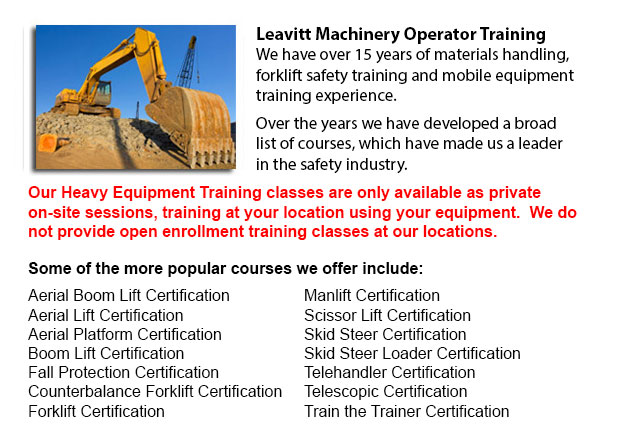
Heavy Equipment Ticket Avondale - Depending on the nature of the task at hand, the type of construction machinery which a heavy equipment operator utilizes differs. Each and every type of machine is constructed to do particular tasks in the most effective manner common to the construction trade. Various kinds of machines are small enough to be utilized inside of warehouses or within plants, and could be specially designed to move pallets and boxes. Bigger equipment is usually utilized outdoors to clear areas and grade land in preparation for construction.
A lot of work projects would require a licensed heavy equipment operator, like for instance various public works projects and private endeavors. Public works jobs can comprise the construction of roads or a bridge. There are many other projects which are publicly financed that include dam construction, airport runways, power plants, municipal structures and levees. Private ventures may include the construction of office buildings, malls, retail stores and industrial parks.
A few of the smaller scale tasks require machines made of the use within large industrial spaces or inside commercial buildings. Normally, the machinery selection comprises cherry pickers, pallet jacks and forklifts. Backhoes and trenchers are often offered in various sizes appropriate for work requiring less bulky and powerful machinery.
Generally, a heavy equipment operator is required to be certified by local or regional agencies. Some are cross-trained and certified to operate a variety of different machine types. Other operators prefer to specialize in operating just one kind of machinery and just require periodic updates on their operating permit certifications.
Employees in this business are often trained through a formal apprenticeship course provided by companies or unions or else with on-the-job training. Some trade and technical schools provide paid training courses. It is vital that employers hire completely-trained heavy equipment operators to be able to follow local guidelines and comply with local and regional laws regarding employee safety and job situations.
-
Forklift Certification Courses Avondale
Forklift Certification Courses Avondale - Forklift certification courses really help to be able to make sure that companies using forklifts, follow the local and regional rules. The drivers of the forklift need to go through forklift certification pr... More -
Manlift Certification Avondale
Manlift Certification Avondale - The Elevated Platforms and Manlifts Certification course helps to provide the required training on the work practices, safe operating procedures, rules and regulations regarding the daily activities for the operators... More -
Manlift Operator Training Avondale
Manlift Operator Training Avondale - The aerial lift or manlift is a specialized type of hydraulic platform that is intended to hoist a person vertically giving it an alternate name of a vertical personnel lift. These machinery are widely used for a... More -
Telescopic Training Avondale
Telescopic Training Avondale - Telescopic Handlers are a type of forklift, normally called telehandlers. This machine has been increasing in popularity because of its greater lift heights and its versatility. It is often preferred over the convention... More -
Heavy Equipment Training Avondale
Heavy Equipment Training Avondale - The two most common types of heavy equipment training are classed into the categories of equipment; equipment that is fashioned with rubber tires or those with tracks. The tracked vehicle are heavy duty equipment l... More -
Aerial Lift Train the Trainer Avondale
Aerial Lift Train the Trainer Avondale - The Aerial Lifts Train the Trainer Certification Program would teach trainers how to efficiently train operators in safe industrial mobile equipment operation. Trainers are provided with in-depth instruction a... More -
Overhead Crane Safety Training Avondale
Overhead Crane Safety Training Avondale - The overhead crane safety training program is meant to equip the operators with the right knowledge and skills in the areas of: crane safety measures, accident avoidance, materials handling, and stock and equ... More -
Heavy Equipment Training Schools Avondale
Heavy Equipment Training Schools Avondale - When choosing an operator training course, there are numerous heavy equipment training schools to select from. In order to ascertain the qualifications you would attain, it is very important to check some a... More

Forklift Training Avondale
TOLL FREE: 1-888-254-6157
Avondale, Arizona
forkliftcertificationavondale.com
Email Us
About Us


